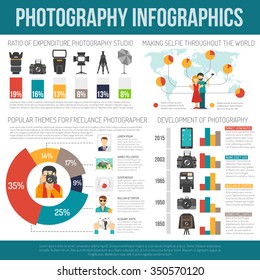Usual Blunders New Photographers Make And Just How To Avoid Them
Usual Blunders New Photographers Make And Just How To Avoid Them
Blog Article
Write-Up Produced By-Schulz Vedel
As a new digital photographer, it's very easy to get caught up in the appeal of premium equipment and neglect the fundamentals that genuinely boost your craft. https://www.liveinternet.ru/users/skovgaard_ford/post509036693 might find yourself frustrated when your images do not show the vision you desired. Usual errors, like ignoring lighting basics or neglecting structure concepts, can hold you back more than you understand. But comprehending https://www.digitalcameraworld.com/tutorials/reflections-photography-4-tips-to-capture-symmetry-in-scenes can change your approach. Let's explore these errors and how you can avoid them to boost your photography journey.
Disregarding Lights Principles
Disregarding lighting basics is one of the biggest bad moves brand-new photographers make. You may think that recording a wonderful photo is everything about your video camera setups or the current equipment, but the fact is, lights is essential. Correct illumination can boost your photos from ordinary to magnificent, and comprehending it can conserve you from numerous missed opportunities.
First, pay attention to all-natural light. The golden hours-- quickly after sunup and before sunset-- supply soft, complementary light that enhances your topic. Prevent rough midday sun, which can cast unflattering shadows. If you're shooting inside your home, place your topic near windows to take advantage of diffused light.
Next, learn to control synthetic lighting. Try out various resources, like lamps or external flash. Usage reflectors to bounce light back onto your topic for a softer impact. Do not forget that shadows can add deepness; welcome them instead of hesitating.
Finally, practice changing your cam setups according to the illumination problems. Understand exactly how shutter rate, aperture, and ISO interact to achieve the preferred exposure.
Overemphasizing Equipment
Lots of new photographers fall into the trap of thinking that having the most up to date and best equipment will instantly boost their digital photography. While it's tempting to think that a higher-end camera or a fancy lens will certainly boost your work, the reality is that it's not nearly the equipment you use.
Your abilities, creative thinking, and understanding of photography play a much larger function in creating spectacular pictures. Buying top-notch gear can be advantageous, yet it shouldn't be your main focus. Rather, concentrate on understanding the fundamentals-- light, make-up, and narration.
You can take spectacular pictures with a simple camera if you know how to use it efficiently. Commonly, it's the digital photographer's vision, not the equipment, that makes the distinction.
Additionally, exaggerating equipment can bring about disappointment and fatigue. You could find yourself continuously chasing after the following piece of equipment rather than refining your craft.
Neglecting Composition Concepts
When you grab your video camera, it's very easy to concentrate exclusively on the subject, however ignoring structure principles can lead to lackluster pictures. Make-up is the backbone of photography; it overviews the viewer's eye and produces an aesthetic story. If you ignore it, your sensational topic might get shed in a messy frame.
Beginning by using the rule of thirds. Envision your structure separated right into 9 equal components by 2 straight and 2 vertical lines. Setting professional application photo along these lines or at their junctions for a well balanced and appealing shot.
In addition, take into consideration leading lines. Usage natural lines in your scene to attract the customer's eye toward the topic.
Do not forget framing. Use bordering aspects to develop a "framework within a framework." This strategy can include depth and emphasis to your subject.
Finally, take notice of adverse space. Sometimes, less is much more. Permitting empty space can improve your prime focus and produce a much more effective image.
Conclusion
Finally, by staying away from these usual pitfalls, you can raise your digital photography skills significantly. Focus on understanding lights, structure, and exposure rather than getting lost in pricey gear. Don't undervalue the power of post-processing, either-- it can truly change your photos. Remember to select the right time of day for shooting, as lighting plays an essential duty in your results. Embrace these pointers, and see your photography grow!
